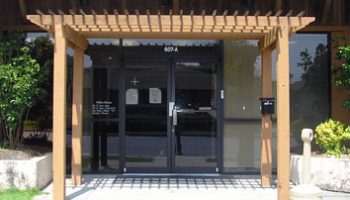Lanier Treatment Center
About Lanier Treatment Center
Once you’ve made the decision to overcome opioid dependence, you need a trusted partner to walk with you on the journey of recovery and self-rediscovery. Lanier Treatment Center (LTC) meets you where you are, helping you take that first step with confidence and keep going. This outpatient clinic sits on Medical Park Drive in Gainesville, Georgia, just about a mile northeast of the Northeast Georgia History Center.
It’s also northeast of the Wilshire Trails Park and the Downtown Gainesville Historic Square. Known as the “Poultry Capital of the World,” Gainesville serves as the county seat of Hall County and a scenic gateway to the North Georgia mountains. Lanier Treatment Center is strategically positioned to support adults in Hall County and across North Georgia. They support clients from diverse backgrounds, including trauma survivors, those navigating legal issues and veterans or active military personnel.
Pregnant women in recovery have unique needs that must be carefully met to help prevent miscarriage, fetal distress and premature labor. LTC offers specialized recovery support that minimizes opioid use risk and withdrawal risks while keeping mom and baby healthy.
Medication-Supported Recovery For Long-Term Abstinence
At LTC, long-term sobriety is supported through medication-assisted treatment (MAT). After a detailed intake assessment, you may be prescribed methadone, Suboxone or Vivitrol. You’ll then attend therapy to work through the emotional and behavioral patterns behind opioid use and build tools to prevent relapse. Specialized outpatient support for trauma survivors is given to help clients process painful experiences and rebuild trust in themselves and others.
Substance Use Disorder Screening and Assessment Services
Lanier Treatment Center offers substance use assessments for pre-employment, post-accidents and return to duty following a workers’ compensation claim. All assessments meet standards required for court-ordered and Division of Family and Children Services-requested substance use evaluations.
| Levels of Care | Detox Service Setting | Programs | Payment Options | Medications Offered |
|---|---|---|---|---|
|
Inpatient and residential programs provide round-the-clock medical and emotional support as you live at the treatment facility. This level of care may be recommended if you have severe addictions or mental health conditions since it removes outside distractions and allows you to focus solely on therapy. |
In outpatient therapy, you’ll attend therapy sessions several times each week while living at home. This is ideal if you have a strong support system and a lower risk of relapse. Outpatient treatment offers flexibility to maintain work, school or family obligations. |
|||
|
Inpatient detox occurs in a dedicated treatment facility. You’ll live there around the clock and receive intensive medical support and supervision to help manage your withdrawal symptoms. It is suitable for individuals with moderate to severe addictions as it ensures a stable detox environment. |
Outpatient detox gives you access to medically supervised withdrawal services while still allowing you to live at home. You’ll attend a clinic for treatment and monitoring. This flexible option is suitable for those with mild to moderate withdrawal symptoms who have strong support systems. |
Medication assisted treatment combines medication and counseling to manage withdrawal and reduce cravings for opioid and alcohol addiction. Medications may include methadone, buprenorphine or naltrexone. MAT is tailored to your needs so you can actively participate in your treatment journey. |
||
|
Teen (13 - 18)
|
Adult programs address the substance use and life challenges specific to adults. Therapists can deliver sessions in individual, group and family settings. Services often include job support and life skills training in a structured environment. |
Women's programs offer a safe and supportive space to focus on gender specific issues such as trauma, family roles and mental health conditions. Therapists tailor the sessions to address women's needs and foster empowerment in a healing and nurturing environment. |
Men's programs address substance use while also considering the social pressures, family roles and mental health concerns that are specific to men. You’ll learn healthy coping mechanisms as you build emotional resilience and develop communication skills. |
|
|
Self Pay
|
Private Insurance
|
|||
|
Methadone
|
Buprenorphine
|
Naltrexone (Vivitrol)
|
Suboxone
|
Levels of Care
Inpatient and residential programs provide round-the-clock medical and emotional support as you live at the treatment facility. This level of care may be recommended if you have severe addictions or mental health conditions since it removes outside distractions and allows you to focus solely on therapy.
In outpatient therapy, you’ll attend therapy sessions several times each week while living at home. This is ideal if you have a strong support system and a lower risk of relapse. Outpatient treatment offers flexibility to maintain work, school or family obligations.
Detox Service Setting
Inpatient detox occurs in a dedicated treatment facility. You’ll live there around the clock and receive intensive medical support and supervision to help manage your withdrawal symptoms. It is suitable for individuals with moderate to severe addictions as it ensures a stable detox environment.
Outpatient detox gives you access to medically supervised withdrawal services while still allowing you to live at home. You’ll attend a clinic for treatment and monitoring. This flexible option is suitable for those with mild to moderate withdrawal symptoms who have strong support systems.
Medication assisted treatment combines medication and counseling to manage withdrawal and reduce cravings for opioid and alcohol addiction. Medications may include methadone, buprenorphine or naltrexone. MAT is tailored to your needs so you can actively participate in your treatment journey.
Programs
Adult programs address the substance use and life challenges specific to adults. Therapists can deliver sessions in individual, group and family settings. Services often include job support and life skills training in a structured environment.
Women's programs offer a safe and supportive space to focus on gender specific issues such as trauma, family roles and mental health conditions. Therapists tailor the sessions to address women's needs and foster empowerment in a healing and nurturing environment.
Men's programs address substance use while also considering the social pressures, family roles and mental health concerns that are specific to men. You’ll learn healthy coping mechanisms as you build emotional resilience and develop communication skills.
Medications Offered
Contact
- Monday 6AM - 10:30AM
- Tuesday 6AM - 10:30AM
- Wednesday 6AM - 10:30AM
- Thursday 6AM - 10:30AM
- Friday 6AM - 10:30AM
- Saturday 6:30AM - 9:30AM
- Sunday Closed

Chika Uchendu is a multi-niche and seasoned SEO writer with expertise in personal finance, technology and health. He’s had over 10 years of experience creating impactful content that resonates with diverse audiences. His journalism and digital marketing background enables him to combine data-driven analysis with engaging storytelling. This helps drive engagement and grants target audiences access to valuable information.
Chika has worked for Benzinga, Motley Fool, Webopedia and many other popular online media outlets on a freelance and contractual basis. He is using his voice to drive awareness and meaningful change among people dealing with the pandemic of substance use disorder. Chika is an ambivert who enjoys sports, hiking, reading and video gaming.

Peter W.Y. Lee is a historian with a focus in American Cold War culture. He has examined how popular culture has served as a coping mechanism for the challenges and changes impacting American society throughout the twentieth century.




